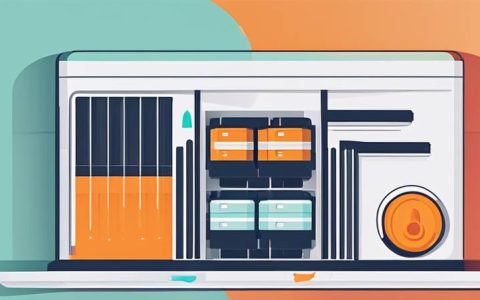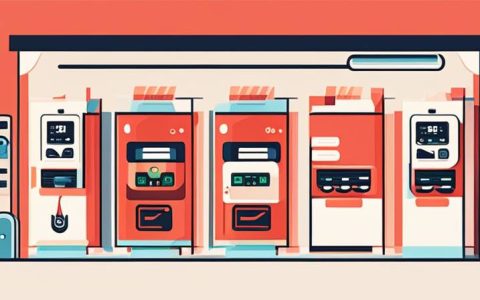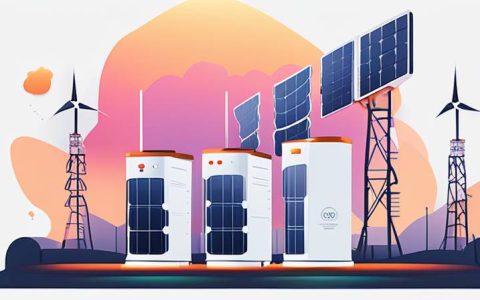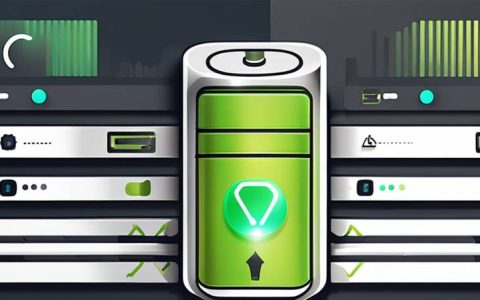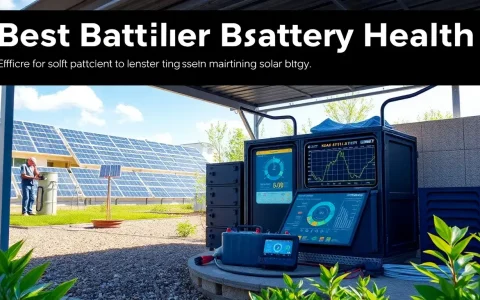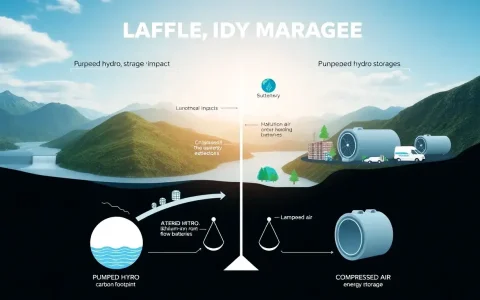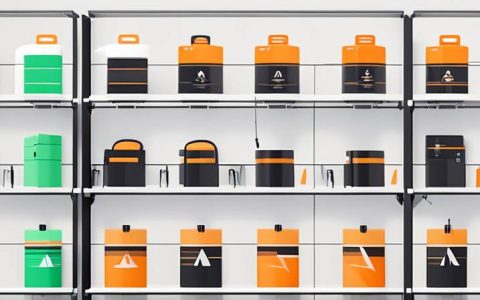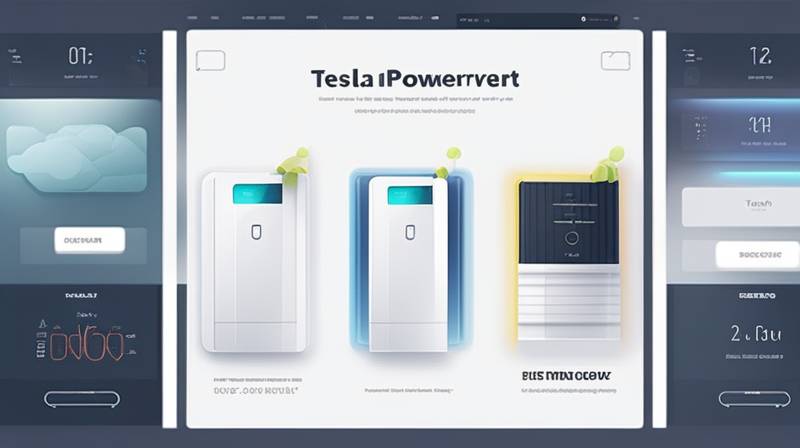
Tesla Powerwall possesses a multitude of industry certifications that validate its safety, reliability, and efficiency. 1. The product meets UL 9540 standards for energy storage safety, which signifies rigorous testing for fire, electric shock, and mechanical hazards. 2. Tesla Powerwall also holds IEC 62619 certification for battery safety, emphasizing a global standard for lithium-ion battery systems. 3. The device is recognized by the California Energy Commission (CEC), verifying energy storage technologies for grid applications. 4. Furthermore, it complies with ISO 9001 quality management system standards, showcasing Tesla’s commitment to consistent quality in operations and production. These certifications not only enhance consumer trust but also enable seamless installation and integration into energy systems, thereby aiding in the proliferation of renewable energy solutions.
1. CERTIFICATION LANDSCAPE
The realm of certifications for energy storage products, specifically for Tesla Powerwall, is broad and nuanced. Various organizations and institutions oversee the certification process to ensure that products like the Powerwall meet high safety and performance expectations. The significance of such certifications cannot be overstated; they serve as a benchmark for manufacturers and consumers alike. Certifications help to validate claims made regarding the efficacy and safety of energy solutions, thereby fostering a sense of reliability and trust.
Additionally, the evolving regulatory landscape concerning energy storage systems necessitates these certifications. Authorities across various geographies are increasingly focused on safety standards, emissions, and performance metrics. Tesla’s proactive approach to securing a wide array of certifications underlines its commitment both to innovation and to meeting regulatory requirements. This comprehensive portfolio of certifications positions Tesla Powerwall as not just a product for residential use, but also as a viable solution for commercial and industrial applications requiring robust energy storage systems.
2. UL 9540 CERTIFICATION
One of the most crucial certifications attained by Tesla Powerwall is UL 9540, which pertains specifically to safety standards for energy storage systems. This certification ensures comprehensive testing against factors such as fire hazards, electric shock, and mechanical issues that could arise during normal and abnormal operating conditions. For power storage units intended for residential deployment, such certification is paramount to assure homeowners that the product adheres to stringent safety benchmarks.
In-depth evaluations are conducted in line with UL 9540, covering aspects like thermal runaway, short circuit risks, and various environmental conditions the battery may face. As a result, UL 9540 certification is not merely a formality; it is indicative of a product that has undergone rigorous scrutiny under the American National Standards Institute (ANSI) guidelines. The implications of this certification extend beyond mere compliance; it enhances consumer trust while simultaneously reinforcing Tesla’s commitment to safety and innovation within the domain of renewable energy technologies.
3. IEC 62619 CERTIFICATION
The International Electrotechnical Commission (IEC) is pivotal in establishing a global framework for safety and performance standards in the field of electrical and electronic technologies. With Tesla Powerwall obtaining IEC 62619 certification, it underscores its adherence to internationally recognized safety regulations geared towards lithium-ion batteries. This certification is essential for products utilized in industrial and commercial settings, where adherence to global standards is critical for operational viability.
The IEC 62619 certification process evaluates various parameters, including electrical, mechanical, and thermal stability, as well as lifecycle performance. This level of scrutiny ensures that the Powerwall not only performs optimally but also maintains safety throughout its operational lifespan. As energy storage becomes integral to modern energy frameworks, the IEC certification assures stakeholders—from manufacturers to end-users—that Tesla Powerwall meets rigorous criteria, thus allowing for broader adaptation in diverse applications.
4. CALIFORNIA ENERGY COMMISSION (CEC) CERTIFICATION
The California Energy Commission has a distinct role in regulating energy storage systems within the state of California, setting the stage for how these technologies are integrated into the electricity grid. Tesla Powerwall’s compliance with CEC regulations is essential, particularly given California’s aggressive climate change targets and renewable energy goals. The CEC certification involves evaluating the product’s performance metrics, including energy efficiency, reliability, and the capability to support grid services.
Receiving CEC certification is a significant milestone, as it not only validates Tesla’s adherence to state-specific energy standards but also enhances marketability within one of the most progressive energy landscapes in the world. Consequently, this certification paves the way for Tesla Powerwall to participate in incentive programs designed to promote renewable energy adoption. By aligning with state-level requirements, Tesla Powerwall solidifies its position as a front-runner in the energy storage sector, fostering greater acceptance and utilization of energy storage solutions in residential and commercial markets.
5. ISO 9001 CERTIFICATION
Quality management is fundamental for any manufacturer aiming to deliver consistent and high-quality products. Tesla’s attainment of ISO 9001 certification reflects its dedication to maintaining a stringent quality management system throughout its operations. This ISO standard emphasizes a process-oriented approach aimed at continual improvement and customer satisfaction—principles that resonate strongly within the renewable energy sector.
For Tesla Powerwall, ISO 9001 certification translates to systematic processes in development, production, and delivery—ensuring that each unit is manufactured under a controlled environment that adheres to established quality benchmarks. The advantages of ISO 9001 are manifold; clients can have increased confidence in the product’s reliability and performance, while the manufacturer benefits from reduced waste and optimized processes. Overall, ISO 9001 certification is crucial in differentiating Tesla Powerwall in a competitive marketplace, underpinning its reputation as a reliable and innovative energy solution.
6. PERFORMANCE AND EFFICIENCY STANDARDS
Beyond safety certifications, performance metrics are essential for any energy storage solution, and Tesla Powerwall does not fall short in this regard. Efficiency ratings are imperative for determining how effectively energy is stored and subsequently released for consumption. Knowledge of how different certifications address performance standards helps potential buyers make informed decisions.
The energy conversion efficiency of Tesla Powerwall is often a focal point for homeowners and businesses alike. The Powerwall’s ability to store excess energy during non-peak hours and dispense it during peak demand is a hallmark of its design. Understanding the performance standards under certifications such as UL and IEC provides a transparent understanding of the product’s capabilities, ensuring that users are aware of what to expect in terms of lifecycle performance and energy efficiency.
7. REPUTATIONAL ADVANTAGE
Obtaining certifications secures a reputational advantage for Tesla Powerwall in the increasingly competitive energy storage market. As consumers gravitate towards brands with proven reliability, certifications serve as a form of validation for Tesla’s promises. This aspect becomes especially vital in the realm of renewable energy, where trust plays a pivotal role in purchasing decisions.
Tesla’s commitment to acquiring various certifications demonstrates not only its focus on product excellence but also its dedication to customer safety and overall satisfaction. In a market teeming with various energy storage options, Tesla Powerwall stands out as it possesses a range of recognized certifications that collectively bolster its credibility. The reputational benefits of these certifications are substantial and can significantly impact a customer’s choice, particularly in an era where buyers are increasingly informed and particularly focused on sustainable energy solutions.
8. FUTURE CERTIFICATION INITIATIVES
Looking ahead, maintaining relevance and market leadership will require Tesla Powerwall to continue its pursuit of certification excellence. As new technologies emerge and regulations evolve, the landscape for energy storage certification is bound to change. For instance, advancements in battery technology could yield new performance metrics and safety protocols that future iterations of the Powerwall must incorporate.
Moreover, as the global demand for renewable energy storage solutions increases, maintaining alignment with certifications from various countries will become essential. Engaging with international standards organizations will help Tesla stay ahead in the competitive field, ensuring that Powerwall remains compliant with emerging standards. The ongoing evolution of certification requirements will play a significant role in shaping the future of Tesla Powerwall and similar products in the energy storage domain.
9. CUSTOMER EDUCATION AND AWARENESS
Effective customer education surrounding certifications associated with Tesla Powerwall is critical. Consumers often have questions regarding what these certifications signify, particularly around safety and performance. Providing comprehensive information about certification benefits can significantly impact customer decision-making processes.
By offering detailed insights into each certification’s implications, Tesla can effectively demystify the complexities of energy storage technologies. Enhanced customer awareness not only fosters trust and credibility but also empowers consumers to make informed choices that align with their renewable energy goals. Thus, customer education initiatives are essential not only for enhancing product credibility but also for promoting broader adoption of energy storage technologies.
10. INNOVATION AND CERTIFICATION
The relationship between innovation and certifications is indicative of how products can continuously improve. Tesla’s investment in R&D underscores the belief that future advancements will lead to even more robust energy storage solutions capable of meeting emergent energy needs. As new technologies are developed, adherence to new and updated certification standards will be crucial in ensuring ongoing compliance and performance reliability.
Innovation typically brings about unique challenges when it comes to certification. As companies like Tesla strive to push the boundaries of energy storage technology, they must be equally committed to navigating the intricate and evolving certification landscape. Remaining at the forefront of both innovation and compliance will further solidify Tesla Powerwall’s reputation as a leader in the energy storage market.
FAQs
WHAT TYPES OF CERTIFICATIONS DOES TESLA POWERWALL HAVE?
Tesla Powerwall holds several notable certifications, including UL 9540 for safety in energy storage systems, IEC 62619 for lithium-ion battery safety, CEC certifications for regulatory compliance in California, and ISO 9001 for quality management systems. These certifications provide diverse assurances about safety, performance, and quality of the Tesla Powerwall. UL 9540 certification specifically is indicative of rigorous testing to meet rigorous safety standards related to fire, electric shock, and mechanical hazards. IEC certification underscores its universal applicability for commercial and industrial settings, while CEC certification emphasizes how the product aligns with regional energy goals. ISO 9001 reinforces Tesla’s commitment to a standardized quality management system that ensures consistent product excellence.
HOW DO CERTIFICATIONS IMPACT THE PERFORMANCE OF TESLA POWERWALL?
Certifications directly influence the performance expectations for Tesla Powerwall by establishing standards that the product must meet or exceed. The safety certifications like UL 9540 and IEC 62619 ensure that the battery system operates within safe parameters even in extreme conditions. This can significantly affect the operational lifecycle and efficiency of the unit. Additionally, performance-related certifications like those from the California Energy Commission provide metrics that dictate how well the product functions within a grid.
Furthermore, the impact of these certifications extends beyond mere functionality. They also shape consumer expectations, making them aligned with what has been validated by recognized standards. Thus, when people understand the breadth of these certifications, they can make informed decisions regarding the practical applications of Tesla Powerwall in various settings, from residential installations to larger-scale energy management solutions.
HOW DOES TESLA ENSURE COMPLIANCE WITH REGULATIONS AND STANDARDS?
Tesla’s compliance with regulations and standards is maintained through a multifaceted approach that involves continuous testing, monitoring, and quality assurance practices. The company rigorously tests its products against established standards such as UL 9540 and IEC 62619, ensuring that each iteration of Powerwall meets or exceeds regulatory expectations. Compliance is not a one-time process; it requires ongoing assessments to account for changes in regulations or technology advancements.
Furthermore, Tesla actively engages with regulatory bodies such as the California Energy Commission to ensure alignment with state-specific guidelines. Through proactive collaboration, Tesla seeks guidance on emerging regulatory concerns and incorporates feedback into its product development process. This underscores a commitment to not only fielding compliant products but also contributing to the evolution of standards within the energy storage industry.
In summary, acquiring certifications is critical not only for ensuring the safety and performance of Tesla Powerwall but also for supporting its operational integrity in a competitive energy storage market. The multiple certifications held by this product validate its quality and functionality, setting the standard for others in the space. Moving forward, Tesla’s strategy should focus on maintaining current certifications while staying adaptive to emerging industry trends and standards. Continued investment in research and development will enable Tesla to both lead in innovation and uphold its commitment to quality and safety. Engaging in comprehensive customer education about the significance of these certifications can strengthen consumer trust and drive the adoption of Tesla Powerwall. In the rapidly changing landscape of energy storage solutions, these aspects will be paramount in shaping the future success of both Tesla and the broader renewable energy market.
Original article by NenPower, If reposted, please credit the source: https://nenpower.com/blog/what-certifications-does-tesla-powerwall-have/


